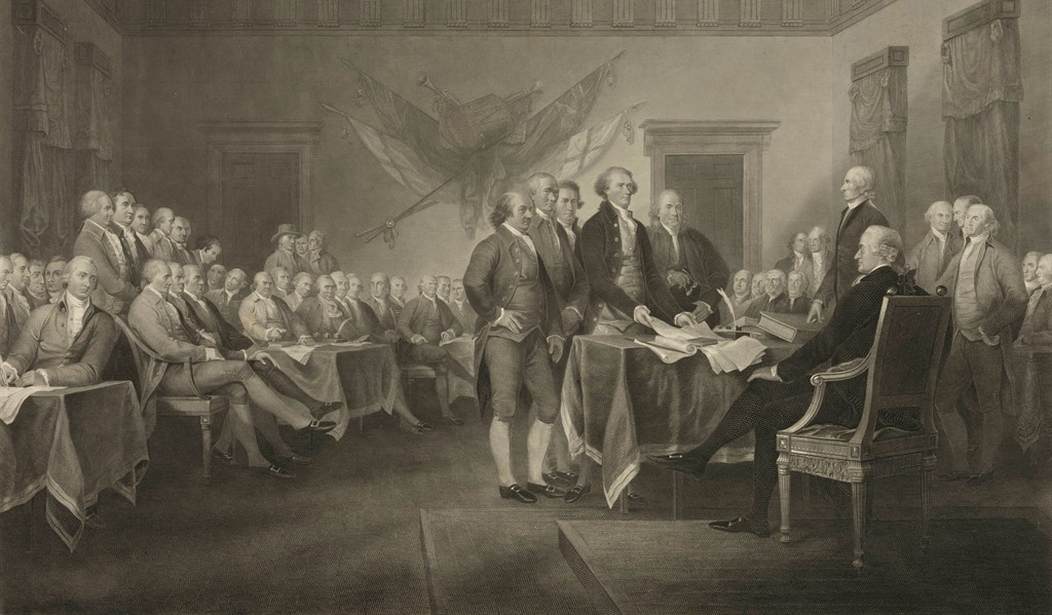The writing has been on the wall for the last several decades. Belief in "American exceptionalism" is dying among the young.
Since 1976, surveys have asked 17-18-year-olds, “Despite its many faults, our system of doing things is still the best in the world.” That's a fair summary of how American exceptionalism can be defined.
In the early 1980s, 67% of young people agreed with that statement. By 2022, only 22% believed it. Why?
Some might point to the way we teach our children about America. We no longer glorify America as the freest, the most prosperous nation on earth. Instead, many school districts have swung the pendulum to the other side, portraying America as evil and no different from any other oppressive nation.
This has no doubt led to the belief that the founding of America was not anything to be proud of. A recent poll by the Democracy Fund asked young people whether the founders were “better described as villains” or “as heroes.” Four in ten Gen Zers saw the Founding Fathers as villains.
To hold that belief, one has to be totally ignorant of the 18th century and of the factors that led to the American Revolution. It also demonstrates an inability to contextualize what it was like to live in America at that time.
It shows that these children (that's what they are) have never been taught how to think critically: to examine an argument, pick out its flaws, and reach conclusions based on their own thinking. Without that skill, they are unable to tell the difference between propaganda and argument.
Vivek Ramaswamy, at a recent appearance at Liberty University, spoke passionately about our founding and why, even with all its faults, America is still an exceptional country.
“When our nation was born in 1776, we were a nation of underdogs,” he said. “We were a nation of insurgence. Our Founding Fathers stood up to the most powerful empire in the world, declared their independence, and then somehow turned assertion into reality… In order to make America great again, we have to know the story of what made America great the first time around. That’s the story of our nation, that’s the story of our history, and it’s a story that we’ve forgotten.”
Not just forgotten. Our nation's founding, as magical as it appeared to be in the 18th century, has been turned into an evil act by evil men. Only by recalling that magic, how it carried us through crisis after crisis, can we recapture the spirit of exceptionalism that animated so much of our history.
“We fight for the truth. We stand up for the truth,” Ramaswamy said. “That is what won us the American Revolution. That is what reunited us after the Civil War. That is what won us two world wars and the Cold War. That is what still gives hope to the free world. And if we can revive that dream over group identity, victimhood, and grievance, then nobody in the world … is going to defeat us. That is what American exceptionalism is all about, and that is what we will revive to save this great nation.”
One possible explanation for the decline in American young people's belief in their own country is the decline in mental health among youth.
Twice as many teens and young adults are depressed than in the early 2010s. This is a tragedy—and it’s likely to have wide-reaching effects. Depression isn’t just about emotions; it’s also about cognition. By definition, depressed people see the world in a more negative light. They are less likely to see the positive, including in their country. Increases in depression are larger among liberals, consistent with the larger decline in their belief in American exceptionalism.
This is not the same country I grew up in over the last 70 years. It's much worse in some ways. It's better in other ways. History stands still for nothing and no one, and America is not immune.
Is America still "exceptional"? Our founding certainly was. But in other ways, we have lost the ability to do great things. That's largely because we have lost confidence in our exceptional nature. That, in turn, has set us at each other's throats.
Maybe someday we'll get it back. I doubt very much I'll be alive to see it.










